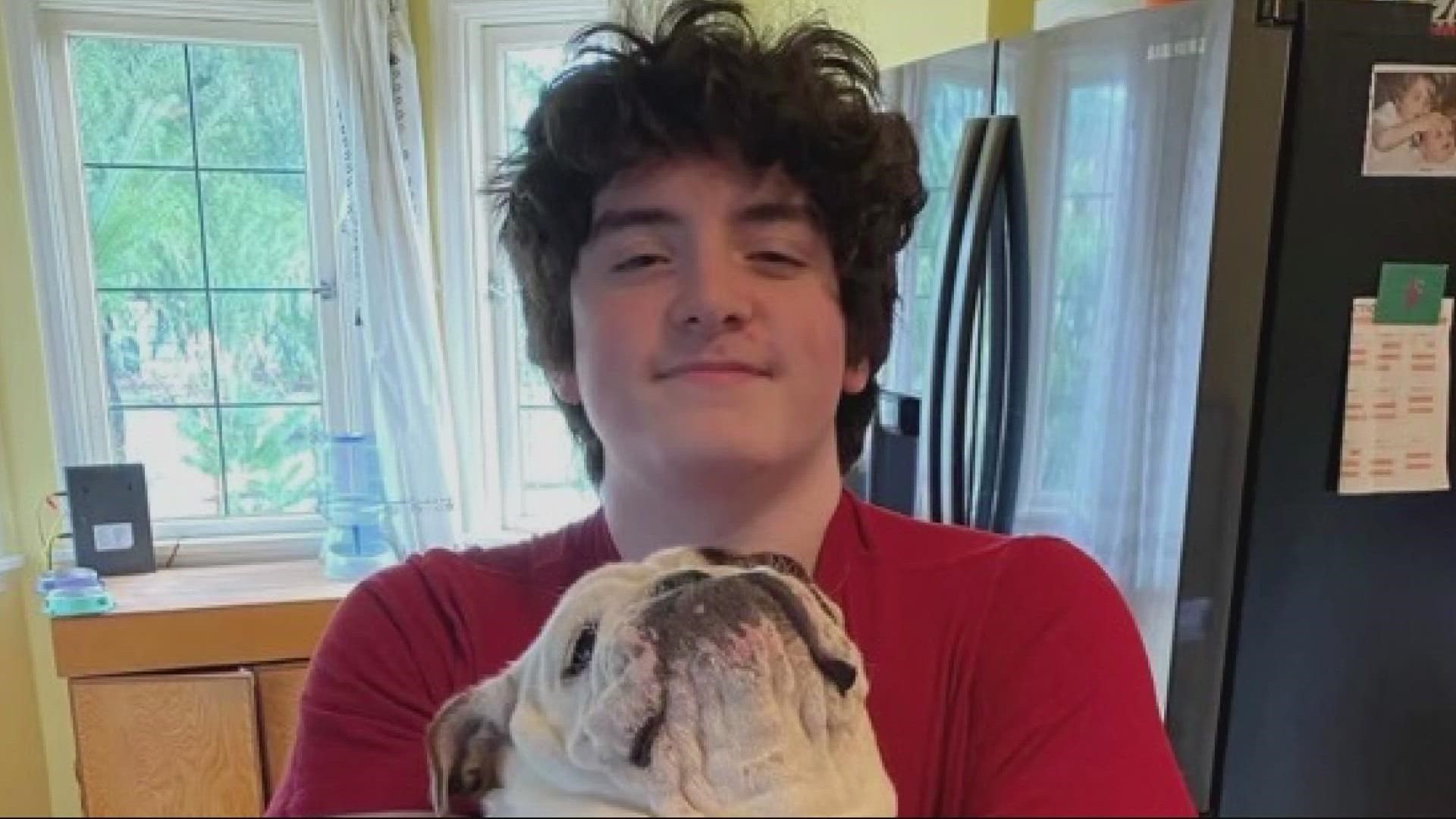PORTLAND, Ore. — The family of 16-year-old Portland high school student Griffin Hoffmann has filed a lawsuit against the man accused of supplying fentanyl pills that resulted in the teenager's overdose death early this year.
In March, Hoffmann was one of two McDaniel High School students who fatally overdosed on fentanyl in the form of counterfeit oxycodone, pressed into the shape of little round blue bills stamped with “M” and "30” on either side.
Within a few short months, investigators arrested 24-year-old Manuel Antonio Souza Espinoza of Vancouver, charging him with supplying the fentanyl that killed Hoffmann. Federal prosecutors described Espinoza as a "third-level" supplier of counterfeit pills in the Portland area.
RELATED: Suspected fentanyl trafficker charged in Portland teen's death to remain in jail pending trial
Kerry Cohen, Hoffmann's mother and representative for his estate, filed the civil complaint against Espinoza in Multnomah County Circuit Court on Friday. The suit demands a jury trial and includes two claims for relief: wrongful death and a survival action for negligence.
The wrongful death claim requests a total of $510,000 in relief for Hoffmann's family, which would be the most in damages that a jury could award. The two claims for relief, Cohen's attorney told KGW, give the jury two "theories" for how to award damages.
"In this case, like many cases, the overwhelming value of the damages is called non-economic damages, sometimes referred to as pain and suffering," said Sean Riddell, Cohen's attorney. "And it is a legal fixture ... it is putting a dollar value on somebody’s pain. That’s very hard to calculate as you can imagine, and it is a legal fixture. So we place this number on it based on what we think juries will give someone to cover their pain, or from examples from previous jury verdicts. The problem here is that there aren’t a lot of jury verdicts on fentanyl — that cause the death of someone they sold fentanyl to."
As an alleged third-level supplier, Espinoza is not accused of selling the fentanyl pills to Hoffmann directly — according to court documents, there were two people who handled the drugs between Espinoza and the teenager. Regardless, like the federal case, Cohen's lawsuit seeks to hold Espinoza responsible for selling the pills.
"Defendant knew or had reason to know that the consumption of fentanyl not under the supervision of a licensed medical professional may cause serious physical injury or death," the lawsuit alleges. "In fact, it is a foreseeable outcome that the unlicensed sale of fentanyl to a minor may lead to the death of the minor."
Riddell stressed that Hoffmann's family is seeking a way to hold Espinoza accountable through civil litigation — taking on agency that can be somewhat lacking in the criminal justice system.
Cohen issued the following statement to KGW on Thursday:
“When what happened to our family happens, there is no way to ease the pain we’ll live with forever. My whole family is in pieces. We’re all destroyed.
"(Espinoza's) criminal conviction won’t make us feel better. Neither will winning the civil case. We won’t feel better if his life is destroyed like ours is. I wish it would, but the only thing we truly want is the one thing that’s not possible.
"This case is about the principle. Money was seized. We should get it. If there’s assets to be had, we should have them. That’s really all there is to it.”

